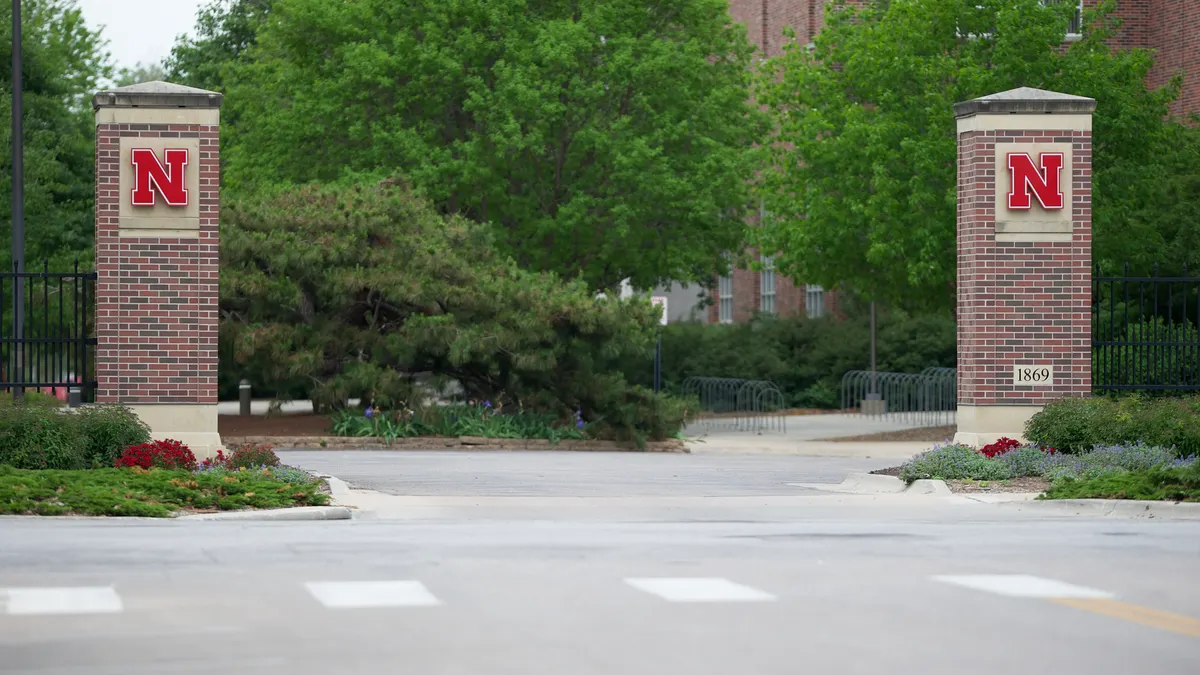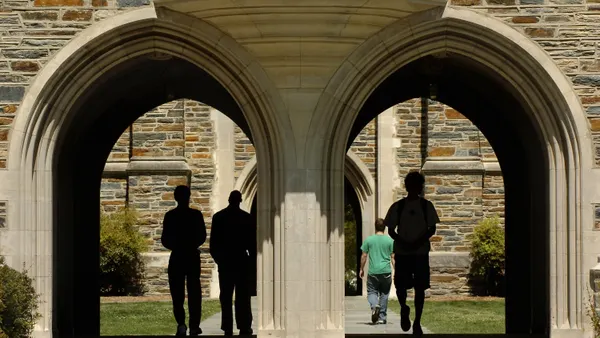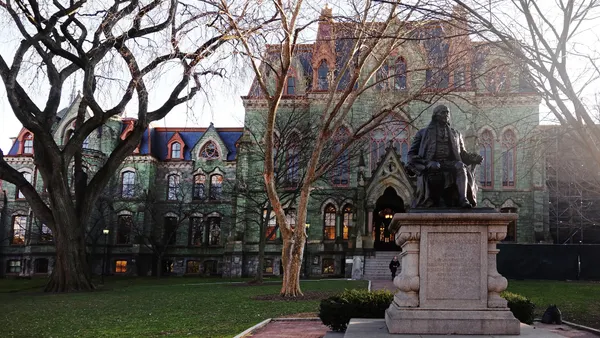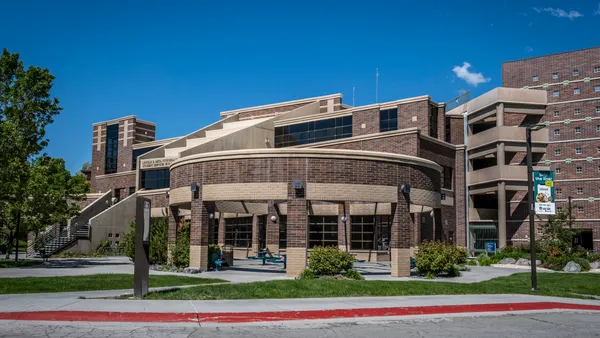Dive Brief:
- The University of Nebraska-Lincoln’s chancellor has proposed cutting six academic programs to save $7.7 million in the public institution’s budget.
- Additionally, four academic departments would be merged to form two new schools to save another $2 million, according to a Friday memo from Chancellor Rodney Bennett to the university’s Academic Planning Committee.
- The proposed program consolidation is part of a wider effort by the state flagship to slash $27.5 million from its budget by the end of the year.
Dive Insight:
Bennett signaled in August that academic program cuts could be on the way as the university wrestled with a nagging deficit.
On Friday, the chancellor outlined a plan to save $21 million to close a structural budget gap as well as $6.5 million "in proactive reductions."
The UNL academic programs on the chopping block are::
- Community and regional planning.
- Earth and atmospheric sciences.
- Educational administration.
- Landscape architecture.
- Statistics.
- Textile, merchandising and fashion design.
In many cases, those program cuts would include the elimination of both bachelor’s and graduate degrees. For educational administration, however, UNL is considering keeping a master’s program in the field while cutting bachelor’s, doctoral degrees and certification programs.
In all cases, the budget savings would come through cutting positions in the affected departments.
Bennett’s plan also calls for merging the departments of entomology and plant pathology into one interdisciplinary school, and agricultural economics and agricultural leadership, education and communication into another. Together, those combinations would save UNL $2 million through “natural attrition,” a voluntary buyout program and an open staff position, Bennett said.
On top of the program cuts, the chancellor proposed reducing the budgets of UNL’s engineering college by $225,000 and arts and sciences college by $325,000 — with the cuts coming from reduced graduate assistantships in both cases.
Beyond academics, Bennett's plan calls for another $17.3 million in administrative budget cuts, including a $3.8 million reduction to administrative and colleges’ staff budgets — which would come with administrative job eliminations. The proposal also seeks to cut $850,000 from the student life budget and shrink all state-aided budgets by 1%.
Bennett said university officials developed the budget plan “after close coordination with university leaders” and feedback from the Academic Planning Committee.
The committee, an advisory body, is taking public feedback online and through hearings scheduled through early October and will make a recommendation to the chancellor later in the month. Bennett said in August that he will propose a final budget reduction plan to the University of Nebraska system president in late October. The board of regents will then consider the final plan in December.
John Shrader, a media professor and president of UNL’s Faculty Senate, lamented the cuts in an interview with the Nebraska Examiner.
“The professors and the Extension and staff and students have not caused a $27.5 million deficit, but we’re paying for it,” he said. “It’s just an awful day for the University of Nebraska, no matter how you look at it.”
In his August address to the UNL community, Bennett acknowledged the strain from multiple rounds of cuts at the university, noting the “cumulative effect of repeated budget processes that extend beyond financial impacts and into areas like employee morale.”
“As you know, we have reduced our budget several times in recent years,” he added. “Despite our best efforts to live within our means, our revenue has not kept pace with expenses.” He cited inflation as well as lagging state funding and tuition revenue.
Between 2020 and 2024, fall headcount at UNL fell 7% to 23,832, according to data from the University of Nebraska system.
UNL’s cuts come as the entire University of Nebraska system tries to balance its budget through both budget cuts and tuition hikes amid shortfalls in both federal and state funding.














